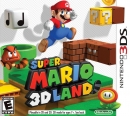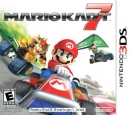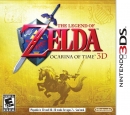Jumpin said:
They’ve been touting it? I am not seeing this at all. The game has literally been forgotten since its massive marketing campaign concluded. I don’t think they even mentioned it after a sales footnote summer of last year.
|
Yes. They've promoted it regularly for at least another year, and kept supporting the game until earlier in June, when the last Party Crash took place. Hell, it even got one more update made because it actually sold a bit higher than their expectations. If it didn't meet their expectations, then why would they continue to support it for 2 years?
|
It’s goal was not to demonstrate the joycon, that was 1-2 Switch. If demonstrating the joycon was its goal, they did a very poor job of it since all the youtube channels covering it switched to playing it with button controls until they dropped the game completely not long after.
|
Yes it was. The whole reason the game was made for the Switch in the first place was because the developers thought the Joy-Con were a natural fit for the punching mechanics of the game. Adding button controls was Yabuki's idea as he felt that a fighting game like this should allow players different options, and the Switch embraces such versatility. He even said that nearly half as many people play with Motion Controls as Button players. Small YouTube sample sizes don't compare to the actual stats the developers have access to.
|
With ARMs they were attempting to bring alive some kind of massive competitive gaming scene, it was in all the marketing. And that didn’t happen. Like their other failures (e.g. Nintendo Land) there’s been zero follow-up, zero touting. It’s looking like a game that they consider failing to reach expectations.
I’m not saying I didn’t enjoy the game, I was probably its biggest fan on VG Chartz. I’m saying that Nintendo is not treating this game like a success. The reasons I believe this is the case are outlined in my posts.
|
There may have been an attempt to make it a viable competitive game. But that wasn't the main point of the game. It's primary function was to demonstrate the Joy-Con's use in a new kind of fighting game with a New IP. In that sense, it did fine. Sure, the competitive aspect may not have caught on the way they wanted, but that should not be a reason to give up. If anything, that should be a reason to improve. Fixing the problems of the original, while still keeping what they original did well is how you make a more successful sequel.
|
Some are saying it’s a good show for a new game in a niche genre. Then why would Nintendo care about putting all these resources into some kind of niche genre before ignoring it completely? Clearly, they were looking for big success in a new ocean. That didn’t happen.
|
Unless you know what Nintendo's sales expectations were, there's no way to be certain. Do you really think ARMS had that kind of money put into it? It mostly likely didn't cost that much to make, and its marketing campaign was much smaller than the original Splatoon's, which was hyped to hell and back with events and endless commercials. ARMS had much more modest marketing with the occasional tournament, and standard commercials. Nintendo knew this probably wasn't going to be the next Splatoon, so it needed to bring in its own appeal.
|
The other point I made before is that 2.1 million would be a major success for a smaller company with no grand strategic design and without the massive expenses of a machine the size of Nintendo. This isn’t the case with Nintendo. They have limited resources and those resources have important roles. In other words, what ARMs achieved is not particularly valuable to Nintendo in any form other than “we learned that we shouldn’t do this again.”
|
Nintendo may not be as big as Sony or Microsoft, but they're not an indie studio. They've got 900 internal developers in their Kyoto and Tokyo Offices, and a multi-billion dollar net worth. Don't give me that "They don't have the resources" crap. ARMS did fine, selling solid, but not amazing numbers. Nintendo continued to Market and support the game for another year or two. Even the producer is interested in making a sequel. Nintendo's made sequels to games that sold far less than ARMS before. Pikmin and Rhythm Heaven being major examples.

























































